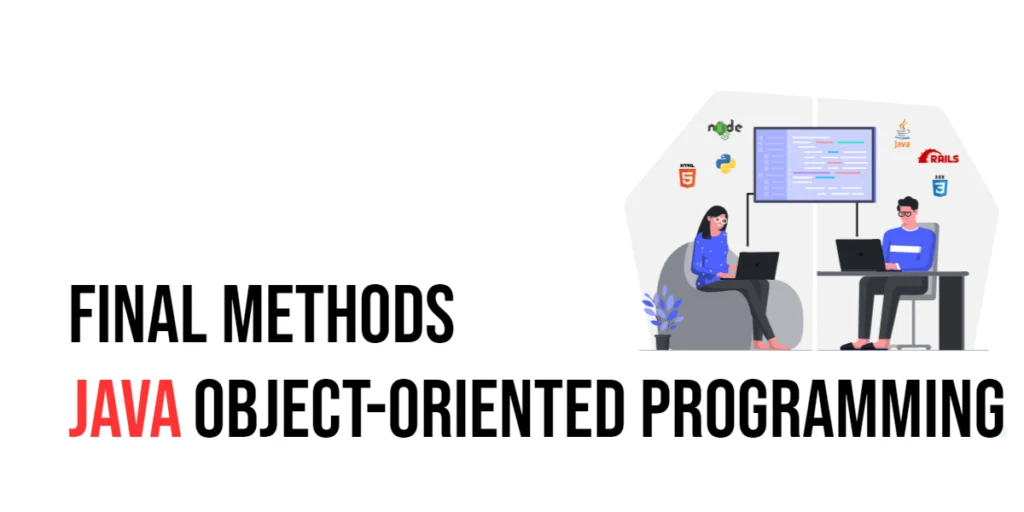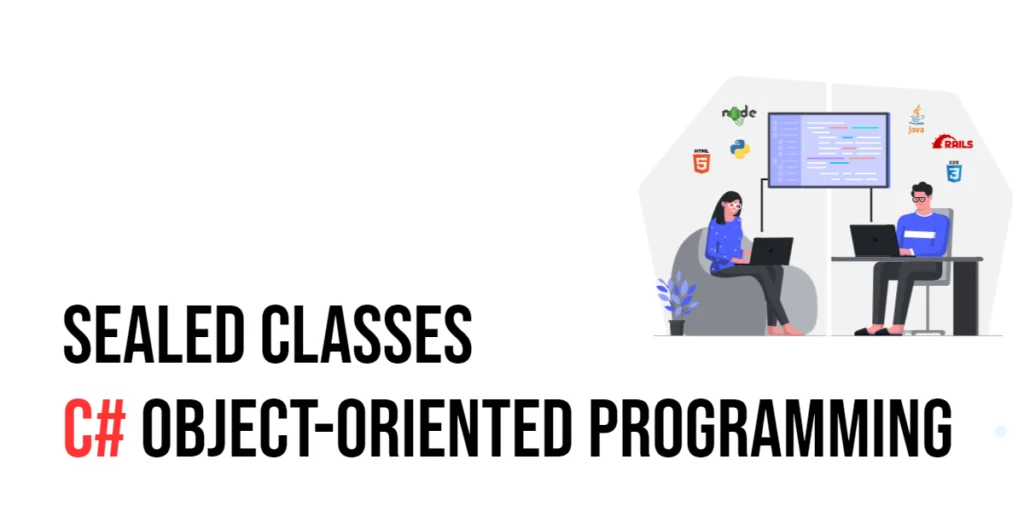In Java, Object-Oriented Programming (OOP) is a paradigm that encapsulates data and behavior into objects, facilitating modular, reusable, and maintainable code. One of the fundamental aspects of OOP is inheritance, where a class can inherit properties and methods from another class. While inheritance promotes code reuse and flexibility, there are scenarios where you might want to restrict certain behaviors. This is where the concept of final methods comes into play.
A final method in Java is a method that cannot be overridden by subclasses. Declaring a method as final ensures that its implementation remains unchanged in any subclass, providing a way to enforce consistent behavior across the inheritance hierarchy. This can be particularly useful for methods that are critical to the correct functioning of a class, as it prevents accidental or intentional modifications that could lead to unexpected behavior.
In this article, we will explore the concept of final methods in Java in detail. We will start by defining final methods and understanding their syntax. We will then discuss how final methods prevent method overriding, explore practical use cases, consider performance benefits, and examine their usage in abstract classes. Each section will include comprehensive explanations and executable code examples to demonstrate the concepts.
Defining Final Methods
A final method is declared using the final keyword in its method signature. Once a method is declared as final, it cannot be overridden by any subclass. This ensures that the method’s behavior remains consistent across all instances of the class and its subclasses.
To define a final method, you simply add the final keyword before the method’s return type. Here is a basic example:
class Parent {
public final void showMessage() {
System.out.println("This is a final method.");
}
}
public class Main {
public static void main(String[] args) {
Parent parent = new Parent();
parent.showMessage();
}
}In this example, the showMessage method in the Parent class is declared as final. When the Main class runs, it creates an instance of Parent and calls the showMessage method, which prints a message to the console. This method cannot be overridden by any subclass of Parent.
Preventing Method Overriding
Method overriding occurs when a subclass provides a specific implementation for a method that is already defined in its superclass. While this feature is essential for polymorphism and dynamic method dispatch, there are situations where you want to prevent certain methods from being overridden to maintain the integrity of the class’s behavior.
Let’s extend the previous example to illustrate how final methods prevent method overriding:
class Parent {
public final void showMessage() {
System.out.println("This is a final method.");
}
}
class Child extends Parent {
// This will cause a compilation error
// public void showMessage() {
// System.out.println("Attempting to override final method.");
// }
}
public class Main {
public static void main(String[] args) {
Child child = new Child();
child.showMessage();
}
}In this example, the Child class attempts to override the showMessage method from the Parent class. However, since showMessage is declared as final in Parent, the compiler will generate an error, preventing the Child class from overriding it. This ensures that the original implementation of showMessage remains intact.
Use Cases for Final Methods
Final methods are useful in scenarios where you want to ensure the consistent behavior of critical methods across all subclasses. They are particularly beneficial in large and complex systems where certain methods perform essential operations that should not be altered by subclasses.
Consider a scenario where a method calculates the total price in an e-commerce application:
class Order {
public final double calculateTotalPrice(double price, int quantity) {
return price * quantity;
}
}
class SpecialOrder extends Order {
// This will cause a compilation error
// public double calculateTotalPrice(double price, int quantity) {
// return (price * quantity) * 0.9; // Attempting to apply a discount
// }
}
public class Main {
public static void main(String[] args) {
SpecialOrder specialOrder = new SpecialOrder();
double totalPrice = specialOrder.calculateTotalPrice(100.0, 2);
System.out.println("Total Price: " + totalPrice);
}
}In this example, the calculateTotalPrice method in the Order class is declared as final to ensure that the calculation logic remains consistent. Any attempt to override this method in the SpecialOrder class will result in a compilation error, preserving the integrity of the price calculation logic.
Performance Considerations
In addition to enforcing consistent behavior, final methods can also offer performance benefits. The Java Virtual Machine (JVM) can optimize calls to final methods more efficiently because it knows that the method’s implementation cannot be changed by subclasses.
To demonstrate the performance benefits of final methods, consider the following example where we compare the execution time of a final method versus a non-final method:
class PerformanceTest {
public final void finalMethod() {
// Simulate some processing
}
public void nonFinalMethod() {
// Simulate some processing
}
}
public class Main {
public static void main(String[] args) {
PerformanceTest test = new PerformanceTest();
long startTime = System.nanoTime();
for (int i = 0; i < 1000000; i++) {
test.finalMethod();
}
long endTime = System.nanoTime();
System.out.println("Final method execution time: " + (endTime - startTime) + " ns");
startTime = System.nanoTime();
for (int i = 0; i < 1000000; i++) {
test.nonFinalMethod();
}
endTime = System.nanoTime();
System.out.println("Non-final method execution time: " + (endTime - startTime) + " ns");
}
}In this example, we measure the execution time of calling a final method versus a non-final method one million times. Although the performance difference may not be significant in this simple example, in more complex systems, the JVM can take advantage of the final keyword to optimize method calls, potentially leading to improved performance.
Final Methods in Abstract Classes
Abstract classes in Java are used to define common behavior that can be shared by multiple subclasses. While abstract methods must be overridden by subclasses, abstract classes can also contain final methods to enforce certain behaviors.
Consider an abstract class that defines a template for processing orders, with a final method to log the order processing:
abstract class AbstractOrderProcessor {
public void processOrder() {
validateOrder();
calculateTotal();
logOrderProcessing();
}
protected abstract void validateOrder();
protected abstract void calculateTotal();
private final void logOrderProcessing() {
System.out.println("Order processing logged.");
}
}
class OnlineOrderProcessor extends AbstractOrderProcessor {
@Override
protected void validateOrder() {
System.out.println("Online order validated.");
}
@Override
protected void calculateTotal() {
System.out.println("Total calculated for online order.");
}
}
public class Main {
public static void main(String[] args) {
OnlineOrderProcessor processor = new OnlineOrderProcessor();
processor.processOrder();
}
}In this example, the AbstractOrderProcessor class defines an abstract template method processOrder that calls validateOrder, calculateTotal, and a final method logOrderProcessing. The final method ensures that order processing is logged consistently, regardless of the specific implementation in the subclasses. The OnlineOrderProcessor class provides specific implementations for validateOrder and calculateTotal, while logOrderProcessing remains unchanged.
Conclusion
In this article, we explored the concept of final methods in Java. We started by defining final methods and understanding their syntax. We then discussed how final methods prevent method overriding, explored practical use cases, considered performance benefits, and examined their usage in abstract classes. Each section included comprehensive explanations and executable code examples to demonstrate the concepts.
Final methods are a powerful feature of Java that can enhance the consistency and performance of your code. I encourage you to experiment with final methods in your projects and explore more advanced features and patterns. Understanding and utilizing final methods can significantly improve the reliability and maintainability of your code.







